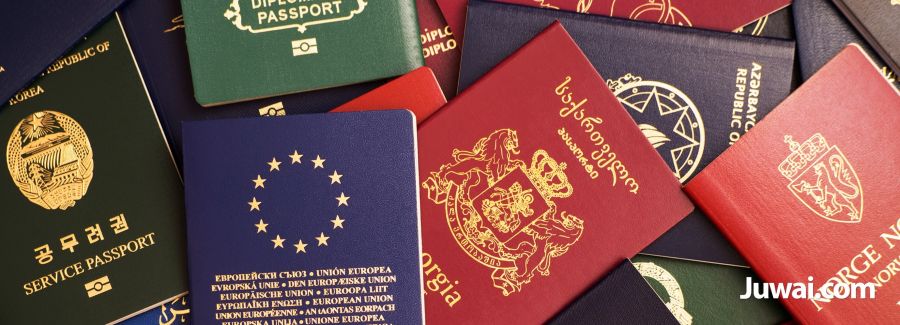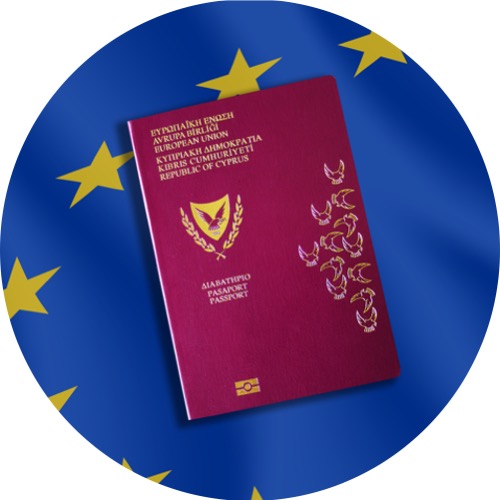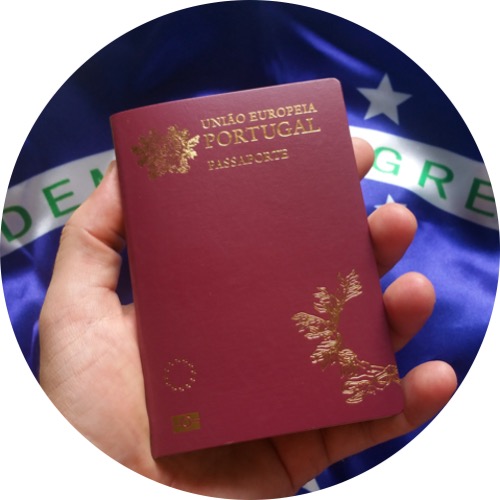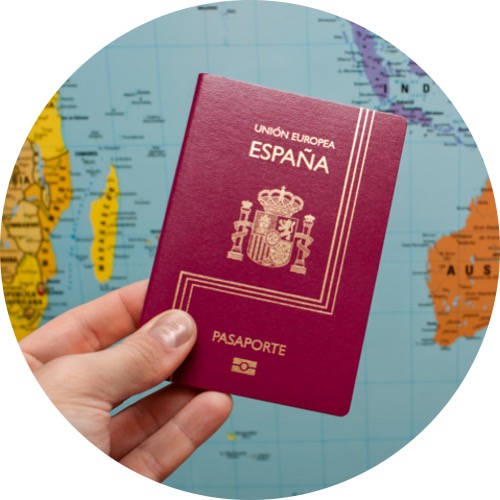You've successfully copied this link.
Foreign immigration supports economic growth and real estate investment success

The pandemic and escalating economic fallout have thrown 2020 real estate forecasts off the track.
It also disrupted supply-demand dynamics across countries and left both property hunters and sellers feeling uncertain. But there are still immense opportunities for cross-border buyers who can take long view on regions where generational economic trends will drive steady price growth and provide great investment yields long after Covid-19.
The connection between immigration and economic growth is well established. For instance, in the US, each one per cent increase in immigration creates a 1.15 per cent increase in GDP in the country, according to estimates by economists at Moody’s Analytics, for ProPublica. As of July 2017, the International Monetary Fund forecast annual GDP growth of 2.1 percent in 2017 and 2018. The Moody’s economists’ analysis for ProPublica indicates an increase in immigration to eight million people per year would push GDP growth to approximately to four per cent percent on an annual basis according to a LaSalle mid-year 2020 report on how foreign Immigration supports economic growth and real estate investment success in the US.1
Though the coronavirus pandemic has stalled most countries’ economy, immigration remains a dependable of economic growth, effectively fuelling the multifamily market and investment in many cities in the West as well as in the East. Immigration drives population gains, contributes to the workforce, and ensures a healthy tension between housing supply and demand. There is little doubt that where migration expands the workforce, aggregate GDP can be expected to grow.2
Besides a broader impact on economic growth in most counties, immigration also has a localised impact on specific industries. The technology industry, for example, benefits from attracting talent from around the world and some cross-border property investors actively invest in countries with large percentages of highly-skilled foreign-born residents.3
Why people immigrate
The virus has undoubtedly been a major driver of immigration engagement of late, say immigration and migration experts. For anywhere from USD100,000 to several million dollars, one can buy a second — or a third — passport through a citizenship by property investment programmes initiated in many countries.4 While these programmes have been around for decades, firms that facilitate the buy-in process are seeing a noticeable increase in interest from high-net-worth individuals (HNWIs) from Asia around the world lately.
While the average person may view the pandemic as a temporary crisis, the uber rich see a more troubling, permanent crack in their financial security. So, they're making property investment as a hedge against longer-term volatility. Their take is about ‘what is the world going to look like in 10 years’ time? As such for them, alternative citizenship by property investment can be a real hedge against local volatility.
Most immigration consultants say the reasons people generally opt for alternative residency through investment programmes is also because they are very restricted by their own citizenship. For wealthy travellers used to going where they want, when they want, having dual citizenship or a passport especially one from a country where they can move freely around the world is an attractive option.
More than 60 nations allow legal residents the opportunity to apply for citizenship after meeting certain criteria. But only about a dozen countries allow non-residents to purchase citizenship outright, typically through a payment in the form of a direct investment in the local economy or often through a real estate investment.
We look at some of the European countries popular with foreign property investors looking for alternative residency
For most high-net-worth Asian property investors especially the Chinese, European citizenship are particularly attractive. Most of these countries’ citizenship via investments programmes, particularly through real estate investment, could take over a year while some may take up to five or six years.
In Europe, some of the most popular countries that allow residency via property investments include Cyprus, Greece and Portugal and Spain.
Cyprus
 In recent years, Cyprus has become a favourite destination for those that have to continuously travel between Europe and Asia. In order for a foreigner to gain residency in Cyprus, they must meet several requirements. The applicant must first purchase new immovable property of a total market value of at least €300,000 plus VAT.
In recent years, Cyprus has become a favourite destination for those that have to continuously travel between Europe and Asia. In order for a foreigner to gain residency in Cyprus, they must meet several requirements. The applicant must first purchase new immovable property of a total market value of at least €300,000 plus VAT.
The buyer needs to deposit a minimum capital of €30,000 from abroad in a Cyprus bank, and lock in it for three years. As a last requirement, the applicant must also have a secured annual income of at least €30,000 deriving from abroad. An income of an extra €5,000 is required for the spouse and each child. An additional €8,000 is required for each dependent parent.
Lastly, Cyprus offers two Golden Visa schemes through real estate investment - one for permanent residency and one for citizenship.5
Greece
 The Greek residency-by-investment scheme requires an investment of €250,000 in a property in Greece, which makes it the cheapest in Europe. The benefits of holding a Greek Golden Visa are many. A Greek Golden Visa holder automatically becomes an EU resident since Greece is a member of the European Union. The holder is also allowed to move freely since the country is part of the Schengen Zone of Europe. The spouse, minor and dependent children up to 21 of the Property Investors also are granted with a five years residence permit, and all of the benefits as the latter.
The Greek residency-by-investment scheme requires an investment of €250,000 in a property in Greece, which makes it the cheapest in Europe. The benefits of holding a Greek Golden Visa are many. A Greek Golden Visa holder automatically becomes an EU resident since Greece is a member of the European Union. The holder is also allowed to move freely since the country is part of the Schengen Zone of Europe. The spouse, minor and dependent children up to 21 of the Property Investors also are granted with a five years residence permit, and all of the benefits as the latter.
The fact that one is not required to live in Greece prior to or during the application, or even after residency has been granted, makes the Greek residency-by-investment scheme very practical.
The visa is granted for five years and renewed every five years if the property investment is retained, but it is not necessary to live in the country to retain and renew the investor visa. Citizenship, though, can only be granted after seven years of residency. More information can be found here.6
Portugal
 Portugal’s Golden Visa programme, launched in 2012, is one of Europe’s most popular, with investors attracted to its flexibility and benefits. The investor visa scheme, which has been actively promoted internationally by the Portuguese government, typically requires an investment of €500,000 (or €350,000 reduced option) in real estate in Portugal. This allows foreign buyers to gain a residency permit for a family including dependent children. The golden visa can be renewed every two years provided the applicant spends two weeks in the country every two years. You can find out more here.
Portugal’s Golden Visa programme, launched in 2012, is one of Europe’s most popular, with investors attracted to its flexibility and benefits. The investor visa scheme, which has been actively promoted internationally by the Portuguese government, typically requires an investment of €500,000 (or €350,000 reduced option) in real estate in Portugal. This allows foreign buyers to gain a residency permit for a family including dependent children. The golden visa can be renewed every two years provided the applicant spends two weeks in the country every two years. You can find out more here.
Spain
 Spain also launched its Golden Visa in 2013, with an investment of €500,000 in real estate gaining family residency. It can be renewed every two years and, after five years, it is possible to gain permanent residency. After 10 years, citizenship is on offer. Investors are not required to reside in Spain in order to retain and renew the residency visa permit. Foreign buyers can purchase one or multiple properties (mix or residential) and joint buyers can combine investments into one property (min €500,000 each).7
Spain also launched its Golden Visa in 2013, with an investment of €500,000 in real estate gaining family residency. It can be renewed every two years and, after five years, it is possible to gain permanent residency. After 10 years, citizenship is on offer. Investors are not required to reside in Spain in order to retain and renew the residency visa permit. Foreign buyers can purchase one or multiple properties (mix or residential) and joint buyers can combine investments into one property (min €500,000 each).7
Malta
 Malta offers rich property investors the opportunity to invest and get EU residence permits, as the island country is part of the European Union, as well as the Schengen Area. This means those with Maltese residency can travel throughout the whole Schengen territory visa-free.
Malta offers rich property investors the opportunity to invest and get EU residence permits, as the island country is part of the European Union, as well as the Schengen Area. This means those with Maltese residency can travel throughout the whole Schengen territory visa-free.
To gain residency in Malta, a foreigner can invest in a property purchase of €320,000 in South Malta or Gozo, or a property lease of €12,000 per annum in South Malta or Gozo. Those making any of the investments above will gain a five-year Maltese permanent residence, which is renewable indefinitely, while investment is required only for the first five years. The beneficiary can also get residence permits for spouse and children, while residence in Malta is not mandatory.8
The bottom line
Most immigration consultants say it’s reasonable to expect more citizenship-by-investment programmes to pop up in the near future. A lot of small countries have been looking at citizenship programmes for quite a while now, for instance, South American countries are trying to create them, and some of the small, developing islands in the Pacific are looking at doing this. For many investors in real estate, it is worthwhile to enter markets that’s has potential urbanization and subsequently growing populations supported by domestic and foreign migration. This in turn will drive economic activity that will support a healthy and prosperous real estate market that will benefit them.
Sources: 1,2 & 3. Laselle Research: A Welcome Development: Foreign Immigration Supports Economic Growth & Real Estate Investment Success; 4. Henley & Partners: A selection of prime citizenship programs; 5. Forbes: Why Cyprus is attractive for high new worth investor; 6 Henley & Partners: The Greece Golden Visa Program; 7. ABC Money: Why 2020 is perfect time to buy property in Spain; 8. Ciantar Associates: Invest in Malta
Liked this article? Sign up for free to get Juwai Juwai Asia Market updates!
2025 © Juwai. All Rights Reserved Privacy Policy | Terms of Service


